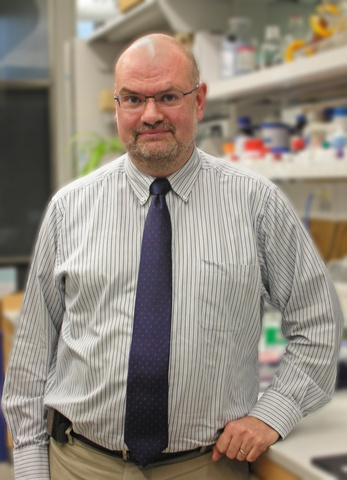 What is your hometown?
What is your hometown?

Buffalo Grove, Illinois.
How/when did you become interested in science and/or medicine?
In junior high school, through science classes and participation in first aid competitions as a Boy Scout.
When did you join the University of Iowa faculty?
2015.
How or why did you choose to join the faculty at the University of Iowa?
The University of Iowa struck me as a Midwest institution providing outstanding clinical care and performing world class research. When I started exploring career opportunities here, there had been a period of growth in neurology/neuroscience. This has continued almost exponentially, especially with the development of the Iowa Neuroscience Institute. It has been an exciting time to be in neuroscience at the University of Iowa. I came to try to contribute to these efforts while expanding my own clinic care abilities and building my own research program.
Is there a teacher or mentor who helped shape your career?
I have had several. Probably my PhD mentor, Dr. Martha Gillette, and postdoc mentor, Dr. George Richerson, had the biggest impact on helping me to be a successful independent clinician-scientist. However, as I look at my overall path, one of the most influential people all the way through has actually been a student/colleague that was a couple years ahead of me. I followed more or less the same path he did: undergrad, MD/PhD, neurology residency, neuroscience postdoc, neuroscience faculty job. I learned a great deal from his trials and tribulations. I think I managed to avoid making the same mistakes he did (though made plenty of new ones on my own) and was probably better prepared for each step than I would have been otherwise. Of course, I have been on this career path since the third year of MD/PhD with my wife. We have been on parallel paths through academic medicine, which has been invaluable professionally and personally.
How do you see your faculty role impacting medicine and/or science?
I hope that my faculty role impacts medicine and science on a number of levels. On a basic level, through my direct interactions proving clinical care for patients with epilepsy, I strive to help them live their lives despite their disease. In the laboratory, we hope to make discoveries that both advance basic science knowledge but that can also be translated to the care of patients. Finally, in the clinics, hospital wards, classroom, and laboratory, I teach undergraduate, graduate, and medical students and other trainees with the intent for each of them to have their own personal impact on medicine and science.
What is the biggest change you’ve experienced in your field since you were a student?
As a neurologist I have experienced a huge increase in clinically relevant basic science discoveries that have been successfully translated to clinical care in both the diagnostic and treatment realms. This has made it a particularly exciting time to be a neurologist/neuroscientist as a rapidly growing number of neurological conditions that were previously untreatable are now treatable.
What one piece of advice would you give to today’s students?
Stay focused, but flexible. It is important to keep a laser focus on your goals. There are so many distractions along the way that it can be easy to lose sight of your ultimate goals. However, it is also important to remember that while the shortest path to an endpoint is a straight line, sometimes the most enriching path is more circuitous. So, while keeping your sights on your goals, take advantage of opportunities that might arise; such opportunities that might be presented to you by a mentor.
In what ways are you engaged in professional activities outside the University?
I am involved in patient centered organizations focused on patient advocacy, education, and scientific discovery. I also mentor high school students primarily though the University’s Secondary Student Training Program.
What are some of your outside (personal) interests?
Spending time with my family, golf, woodworking, reading, cooking.
- Learn more about Gordon Buchanan, MD, PhD